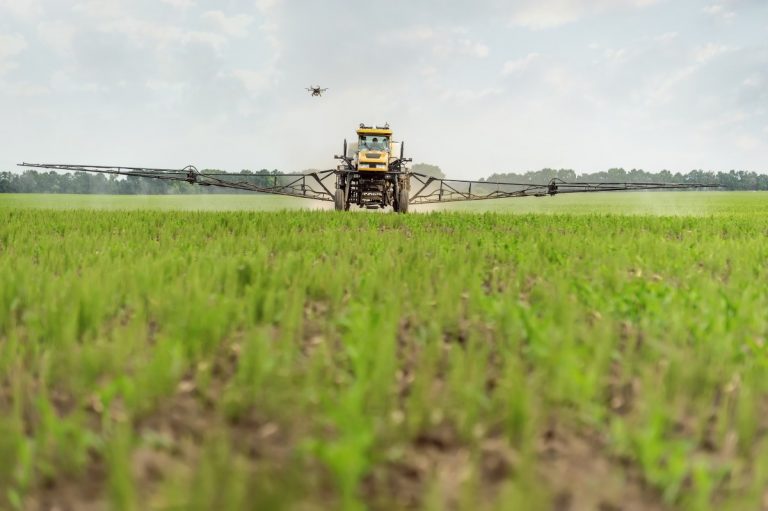
“Our 21st century economy may focus on agriculture, not information.” – James Howard Kunstler
Human civilization depends on the products and values of agriculture. Thousands of years ago, when our wandering ancestors decided to establish a civilization and grow their own food, the very essence of humanity matured and transformed. It marked a turning point in history; a time when villages, towns and cities began to truly flourish. This was the start of economic growth and the birth of knowledge culture.
While scientists can trace agriculture back at least 12,000 years, the sector remains a primary driver for global financial development in the modern day. Forestry, dairy, poultry, fruit cultivation, livestock and bee-keeping all fall under the farming umbrella and form the fabric of human health and well-being. From processing and marketing to crop and livestock distribution, the agricultural profession represents a tower of strength and prosperity for a worldwide population.
Around 70 percent of people currently inhabiting the earth solely depend on farming as a means for living, with agriculture serving as the main source of income for most of the world’s developing countries. In 2016 in the US alone, $135.5 billion worth of American agricultural products were exported to all corners of the globe. According to the American Farm Bureau Federation (AFBF), just one US farm can feed 165 people a year in the US and abroad. However, with the global population expecting to swell to 9.7 billion by 2050, the international farming industry will have to boost current crop production at least 70 percent in order to meet our needs.

We owe human wealth and health to the success of our agricultural products. On top of serving as a major universal employer and engine for growth, the sector fulfils a basic need for the survival of life on earth at the most fundamental level.
In December 2015, after two long weeks of hardcore negotiations, the Paris Agreement was finally signed by the world’s leading players. The settlement requires every party to take urgent action to reduce emissions from the agricultural sector, with the ultimate goal of reducing global warming to below 2°C. The document was signed at the COP21 – an event that opened the door to adaptation and mitigation.
The preamble refers to every aspect of the agricultural challenge – including human rights, gender, ecosystems and biodiversity – on top of recognizing the “importance of the conservation and enhancement” of the natural world. On top of taking a colossal leap toward meeting the UN’s Sustainable Development Goals, the Paris Agreement is a monumental accomplishment in terms of agricultural research and development (R&D).
But why is R&D so essential in the global business of agriculture?
“In addition to developing technologies, there is a need to strengthen the evidence base so as to understand what works in [a] particular geographical and institutional setting and to use this knowledge to guide policy making,” writes the European Commission. “In order to achieve the development objectives of the EU policies on resilience, food security and nutrition, investment in public goods such as knowledge are required at the global, regional and national level.
“There is evidence, both at the macro-level and through case studies, that ARD investment contributes to food security and poverty reduction,” the Commission adds. “Published estimates for the developing world indicate an average return on investment of 43% per annum for ARD. They also suggest that about 27 million people are lifted out of poverty per year in Asia and Africa by research-led agricultural growth.”
The College of Agricultural Sciences & Natural Resources (CASNR) at Texas Tech University actively contributes to agricultural R&D. As a world-reputed institution, CASNR adheres to the highest standards of teaching, investigation and engagement, producing qualified scientists and graduates who safeguard our sustainable future.
CASNR faculty are dedicated to research, priding themselves on the cultivation of future studies and engineers who contribute to innovation and discovery. CASNR excels in a number of fields, with the following specifically deemed areas of research excellence:

Food Safety
CASNR researchers have pushed toward the systematic development and evaluation of production, processing and preparation methods of food products for decades. Faculty are currently working on pre-harvest, harvest and post-harvest strategies and technologies, with the ultimate aim of achieving a safer, better quality and more nutritious global food supply.
Sustainable Land & Water Use
The need to develop long-term, sustainable, integrated systems is vital not only to agriculture, but also to the global population. The Texas High Plains represents a unique opportunity for CASNR, embodying not just one of the most intensive regions for US agricultural production, but also reflecting many of the issues faced worldwide due to ecosystem similarities. As such, Texas Tech researchers gain a valuable insight of complex global issues, analyzing how parts of a system and the resources available interact and work together.
Biotechnology & Genomics
These concepts were pretty much unheard of mere decades ago, but genetically-engineered plants and crops now form the majority of the nation’s harvest. The impact of having agricultural genome sequences cannot be overestimated; this discovery could eventually lead the way for novel applications to utilize production crops such as cotton as an important renewable resource for food, fuel and fiber.

Animal Health, Nutrition & Welfare
The Southern High Plains lies at the heart of the US cattle industry, as well as the rapidly-growing swine and dairy industries. It is one reason why CASNR researchers are so focused on the biology, production, management, care and value-added processing of animal products.
International Development
CASNR holds a global footprint that extends to more than 80 international projects in 42 countries. Additionally, the college offers many opportunities for students to study abroad through faculty-led programs. Some study abroad programs require students to enrol in a specific course or semester – find out more information here.
The revolutionary discoveries coming out of institutions such as Texas Tech’s CASNR have already improved the lives of millions, while graduates continue to forge meaningful careers in business, industry, government and non-profit organizations worldwide. Becoming an active member in the CASNR research community will kick-start your journey to becoming a powerful agent of change. This brings us closer to addressing the greatest sustainable issues currently facing our world.
Follow Texas Tech on Facebook, Twitter, YouTube, Foursquare, Flickr, Instagram and LinkedIn
Liked this? Then you’ll love these…
Bridging the skills gap: Universities that produce job-ready Agriculture graduates
The phenomenal demand for Environment, Agriculture and Natural Resources graduates in the USA







